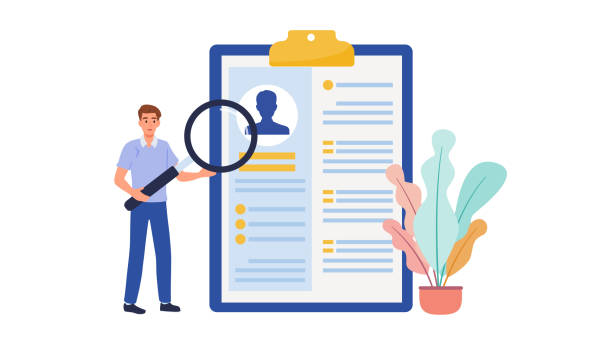Pre employment background check is an indispensable tool because interviews and resumes only offer glimpses into a candidate’s qualifications and they don’t always unveil the complete picture. Thus, by integrating this step into your hiring process, you can guard your organisation against risks and ensure informed hiring decisions.
This pre-assessment process helps employers assess if you’re the perfect fit for the role and ensures a safe and productive work environment for everyone. This article will serve as a guide on what to expect during a pre employment background check.
What’s a Pre Employment Background Check?
A pre employment background check, also known as employment screening, is a process employers use to verify information provided by job candidates and assess their suitability for the role. Furthermore, it helps minimise risks, protect the company, and make informed hiring decisions.
Here’s what a pre employment background check typically involves:
- Statutory declaration. This is a legal document signed by a job candidate that declares specific information under oath or affirmation. It’s often used as part of the comprehensive background check process.
You can make a declaration using this form as observed by an approved witness in person or by an approved witness remotely using a video link.
Furthermore, a digital option through myGov will be available in early 2024. This platform requires no witness and can be signed using an electronic signature. Make sure to check out the Attorney-General’s Department’s website for updated information.
- National Police Check (NPC). This is the most common type of check and reveals criminal convictions, spent convictions (depending on the state/territory), and pending charges. It’s mandatory for certain roles like working with children or vulnerable adults.
- Employment history verification. This confirms the candidate’s previous employers and employment, job titles, responsibilities, and salary. Employers may contact references provided by the candidate or use third-party verification services.
- Education verification. This checks the legitimacy of the candidate’s educational qualifications, such as degrees, diplomas, and certificates.
- Identification verification. This ensures the candidate’s identity is genuine and matches the information they provided. It may involve checking passports, driver’s licenses, or birth certificates.
- Entitlement to work (visa). All individuals who are not Australian or New Zealand citizens, or permanent residents of Australia, need a visa check to confirm their eligibility to work in NSW. Employers can access the Visa Entitlement Verification Online (VEVO) for free to conduct a visa check.
Other Checks
Depending on the role and industry, employers may conduct additional checks, such as:
- Professional licences or memberships – To confirm the candidate holds the necessary licences or is a member of relevant professional bodies.
- Health assessment (GSE rule 9)– Health assessments as part of pre-employment screening. This aims to protect the workplace from contagious illnesses and assesses whether an employee is physically and mentally suitable for the job. Some tests include:
- Physical examination
- Functional capacity testing
- Drug and alcohol testing
- Vision and hearing tests
- Financial responsibility checks – This can involve credit checks, public insolvency searches, and court judgments. However, financial responsibility checks only provide a snapshot of a person’s financial history and should not be the sole basis for employment decisions.

Guidelines for a Pre Employment Background Check
In NSW, a pre employment background check confirms the suitability, integrity, and identity of individuals for employment. The specific requirements for pre-employment screening can vary depending on the organisation and the nature of the role.
However, there are some common elements and guidelines that are usually followed. Here are some key guidelines that might help hiring managers:
Legal Requirements
The requirements for pre employment background check are outlined in the Government Sector Employment Act and the Government Sector Employment Rules. These may include citizenship or residency, formal qualifications checks, and probation periods.
Employer Discretion
It is up to the employer to determine the pre-employment screening checks required for the role. The level of pre-employment screening needed will vary according to the organisational context and the essential requirements of the role.
Candidate Consent
Employers should obtain consent from candidates to undertake pre-employment background check. They should clearly state in the job ad or application form the screening checks for the role. Moreover, candidates need to be made aware that their employment is dependent on the results of the screening.
Working With Children Checks and Police Checks
For roles involving child-related work, such as working with children, specific pre-employment screening requirements, including Working With Children Checks and Police Checks, must be adhered to. These checks are governed by state/territory legislation and are essential for ensuring the safety of children.
Balancing the need for information and risk mitigation with respect for candidate privacy, fairness, and legal compliance is key to making informed hiring decisions and building a diverse and ethical workforce.
Pre Employee Background Checks: Pro-tips for Employers
Pre-employment screening is just one part of the hiring process. Use it in conjunction with other assessments like interviews, reference checks, and skills tests to get a complete picture of the candidate. Thus, you must remember to:
- Understand the legal landscape by researching about privacy laws, anti-discrimination laws, and Fair Work Ombudsman rules and regulations.
- Choose the right pre employment background checks for the role.
- Obtain informed consent from the applicant by clearly explaining what information you need to check and the reason for such check.
- Maintain fair and transparent practices by treating all candidates equally and fairly throughout the screening process and communicating with them about the employee background check results.
- Document everything by keeping records of all pre-employment checks conducted.
By following these tips and adhering to relevant legal requirements, you can conduct efficient and ethical pre-employment screening in NSW that helps you make informed hiring decisions while protecting the rights of your candidates.

Fight Unfair Pre-Employment Practices with JB Solicitors
If you’re facing issues related to conducting background checks, seeking legal advice can be a wise course of action. Unlawful discrimination, privacy violations, and unfair practices are only few of the screening issues that applicants experience.
Thus, a lawyer specialising in employment law can assess your case, explain your options, and guide you through the legal process. Our lawyers at JB Solicitors can offer their expertise and legal knowledge to help your case.
Contact us today.
